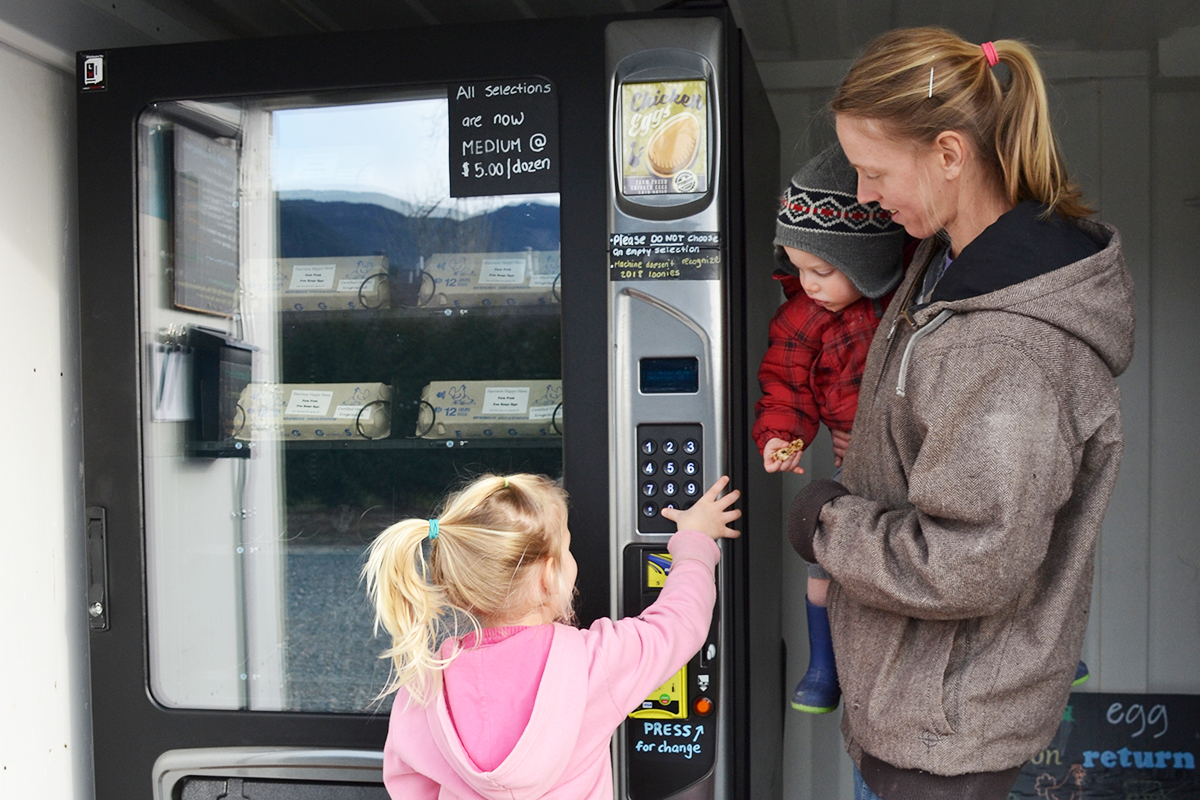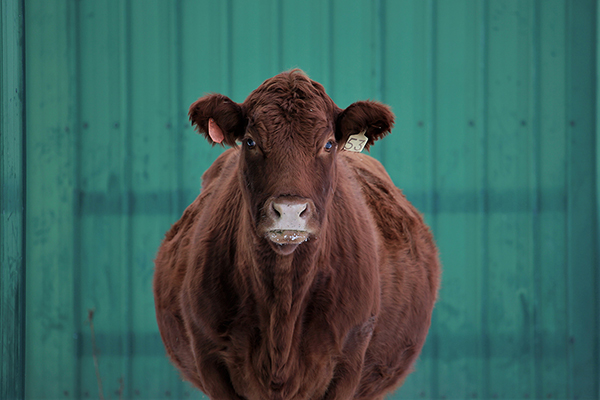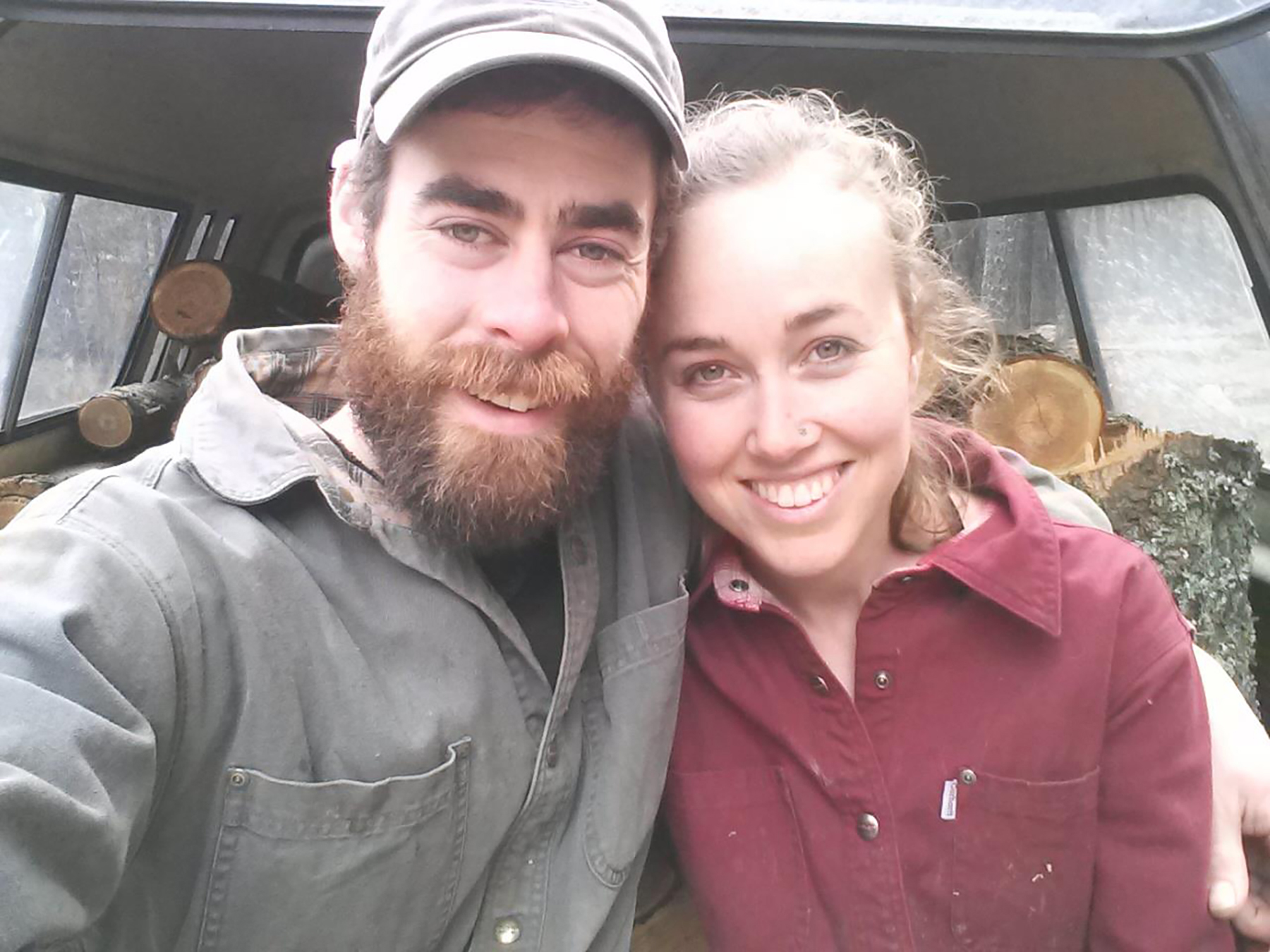AGASSIZ – Willem and Kristin Poortvliet were destined to become farmers, but farmers selling eggs from a vending machine wasn’t something anyone could have predicted.
The couple were small-lot egg farmers for nearly three years, selling eggs from a roadside shack on their Agassiz property. When the BC Egg Marketing Board awarded them quota as new entrants in 2017, they decided to continue roadside sales.
“I love selling to the public,” says Kristin. “There’s just a huge demand.”
The couple kept their original flock of 399 hens until December 2018, when their new barn completed. It features computerized control of feed and climate to ensure hen comfort, and there’s room for expansion. It received its first flock of 3,200 organic, free range hens in January.
Now, instead of selling eggs from the shack, they ship approximately 3,650 dozen eggs to Island Eggs in Chemainus every two weeks. But they also keep a portion to sell from a retrofitted vending machine in a steel container where the shack used to stand.
“I said I wanted to keep going with roadside sales,” says Kristin, noting that they sold 30 dozen eggs a day during the summer months as small-lot producers.
Often, the eggs disappeared within an hour. A small amount of theft contributed to the brisk movement, and that sparked the idea to change up the sales process.
“Willem thought, ‘what about getting a vending machine?’” explains Kristin.
They looked online and considered purchasing a machine from China, but local vending machine supplier Langley Wholesale Ltd. offered to customize a second-hand machine complete with a lifting arm so that egg cartons are rolled onto a shelf then lowered to the bottom opening of the machine without dropping or fear of breakage.
“They were quite excited to customize it for us,” says Kristin.
The refrigerated vending machine holds up to 50 cartons, each holding a dozen eggs collected within the previous 36 hours.
The couple used to sell 11,000 dozen eggs a year, but they’re not sure the new machine will yield as much in sales. Their organic eggs are as fresh as ever, but cost two dollars more at $5.
“Now we’re certified organic, so we have to charge more,” explains Willem. “The feed and certification costs us more.”
Farming is important to the Poortvliets. Kristin grew up with veal calves.
“I grew up in the barn. We were always out with my dad with shovels in our hands,” she says. “My mom would ask for help in the house and there would be no one there. We were all outside.”
Willem’s family was in horticulture. His parents had greenhouses in Canada and prior to emigrating from the Netherlands, his father worked in orchards. His parents continue to live in a home on the property where the Poortvliets live with their three children.
While it’s a long way off, the couple hope to pass the farm down to them, complete with the vending machine.
“We both love animals. Though there’s no chicken farming in our history. It’s just a great thing to do with a family,” says Kristin. “We knew we had to put a lot into it. It took a while to build it up. Even at the 400 [hens], we had to build up our customer base, but now we have that.”
Kristin says some customers would get their eggs from the shack, then show the chickens in the yard to their kids. She uses Facebook (Harrison Happy Hens) to show the world how the hens are doing and share tidbits about the operation. She manages the hens while Willem is at school studying social work.
“We just love that people can have a place to go where they can see chickens,” she says.
“It’s catering more to that buy local thing,” echoes Willem. “It was a long term commitment. It’s something we always wanted to do.”


 Reducing waste will save money on winter feed
Reducing waste will save money on winter feed